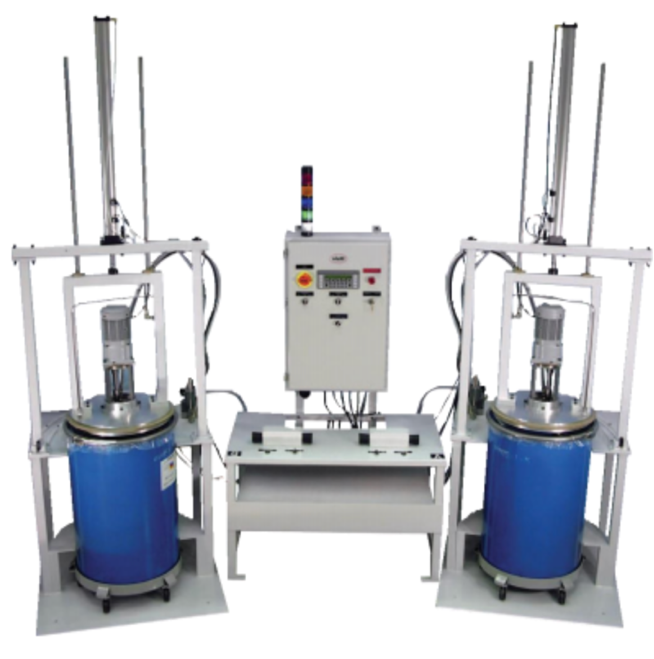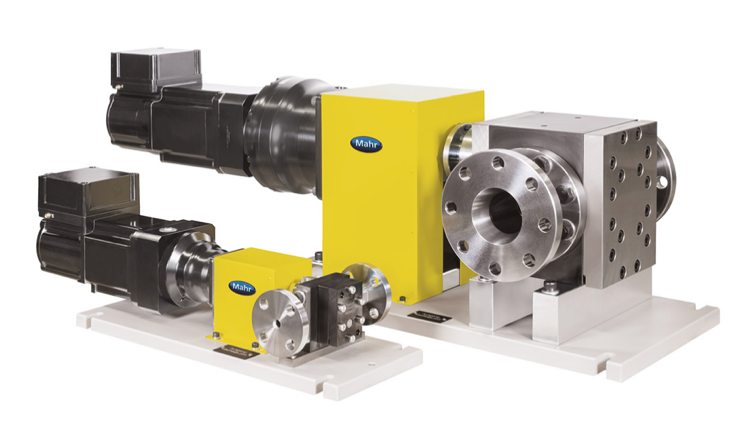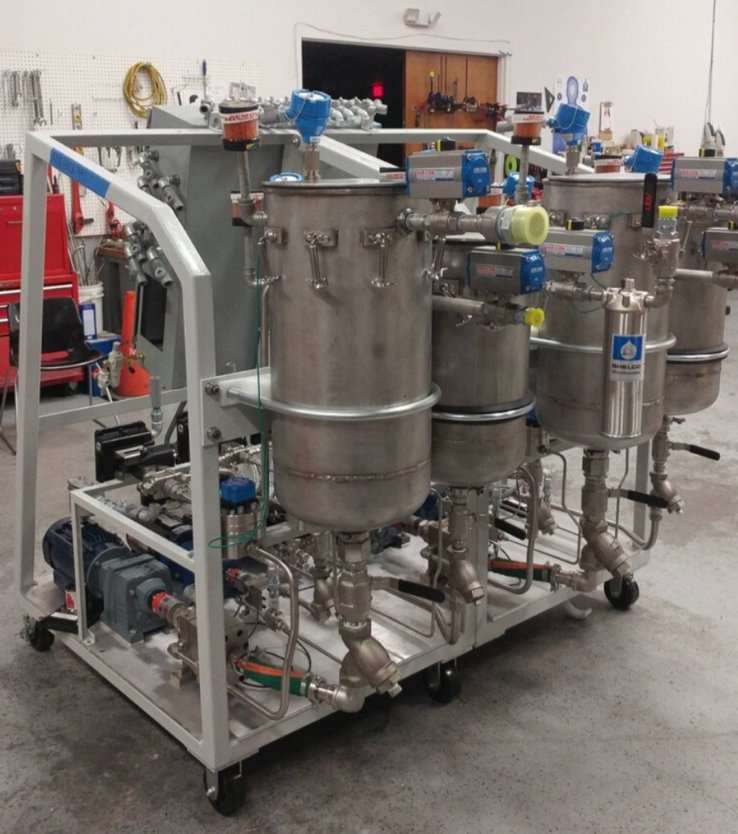Maintaining product consistency is paramount in today’s manufacturing industry. Customers expect uniform quality, and any deviation can lead to dissatisfaction and loss of market share.
One of the pivotal tools in achieving this level of consistency is the implementation of advanced metering techniques. These techniques offer precise control over the manufacturing process, ensuring that each product meets the same high standards.
This blog explores the benefits of advanced metering techniques, including precision gear metering and precision metering pumps, and their application across various manufacturing scenarios.
Understanding Advanced Metering Techniques
Advanced metering techniques involve the use of sophisticated instruments and technologies to measure and control the flow of materials and energy within the manufacturing process. These techniques encompass a wide range of tools, including flow meters, precision gear metering systems, precision metering pumps, pressure sensors, temperature sensors, and integrated control systems that provide real-time data and analytics.
The primary goal of these techniques is to ensure precise measurement and control, reducing variability and enhancing product consistency. By leveraging advanced metering, manufacturers can detect and correct deviations in the production process instantaneously, thus maintaining a high level of product quality.
Benefits of Advanced Metering Techniques
1. Precision and Accuracy
One of the most significant benefits of advanced metering techniques is the precision and accuracy they bring to the manufacturing process. Traditional metering methods can suffer from inaccuracies due to manual errors or outdated technology. In contrast, advanced metering systems use cutting-edge sensors and data analytics to provide precise measurements. This precision ensures that every batch of product adheres to the same specifications, reducing the risk of defects and inconsistencies.
For instance, precision gear metering systems are crucial in applications requiring the delivery of exact volumes of liquids. These systems are designed to provide consistent and accurate flow rates, which is essential in industries like chemical manufacturing, where precise dosing is critical. Similarly, precision metering pumps offer accurate control over fluid flow, ensuring that the correct amount of material is dispensed every time.

2. Real-time Monitoring and Control
Advanced metering techniques offer real-time monitoring and control of the manufacturing process. This capability allows manufacturers to detect and address issues as they arise rather than after the fact. Real-time data enables immediate adjustments, ensuring that any deviations from the desired parameters are corrected promptly.
In the pharmaceutical industry, for example, real-time monitoring of temperature and pressure during the production of medications ensures that each batch meets strict regulatory standards. Any deviation can be quickly identified and corrected, preventing potential quality issues and ensuring patient safety.
3. Enhanced Efficiency
Efficiency is a key factor in maintaining product consistency. Advanced metering techniques streamline the production process by automating measurements and adjustments. This automation reduces the likelihood of human error and increases the speed and efficiency of production.
In the chemical manufacturing sector, precise control over the mixing and reaction processes is essential for producing consistent products. Precision metering pumps, for instance, play a crucial role in this process by providing exact dosing of reactants. These pumps ensure that the correct proportions of chemicals are used and that the reaction conditions are maintained consistently. This automation results in higher quality products and reduced waste.
4. Data-Driven Decision Making
The data collected by advanced metering systems provide valuable insights into the manufacturing process. Manufacturers can analyze this data to identify trends, pinpoint areas of improvement, and make informed decisions to enhance product quality.
For example, in the automotive industry, data from advanced metering systems can reveal patterns in the production process that impact the consistency of vehicle components. By analyzing this data, manufacturers can optimize their processes, improve quality control, and reduce the likelihood of defects.
Applications Across Various Manufacturing Scenarios
1. Food and Beverage Industry
In the food and beverage industry, maintaining consistency in taste, texture, and quality is essential. Advanced metering techniques ensure precise measurement of ingredients, accurate control of cooking temperatures, and consistent packaging.
For instance, in a brewery, advanced flow meters and temperature sensors can control the fermentation process with high precision. This control ensures that each batch of beer has the same flavor profile, carbonation level, and alcohol content, meeting consumer expectations and regulatory standards.
2. Pharmaceutical Manufacturing
Pharmaceutical manufacturing requires stringent adherence to quality standards to ensure patient safety. Advanced metering techniques provide the necessary precision and control over the production process, from measuring raw materials to monitoring environmental conditions.
Advanced metering systems in a pharmaceutical plant can accurately measure the dosage of active ingredients and excipients, ensuring that each tablet or capsule contains the correct amount of medication. Real-time monitoring of temperature and humidity in cleanrooms ensures that the production environment remains within specified parameters, preventing contamination and ensuring product integrity.
3. Chemical Industry
The chemical industry relies heavily on precise measurements and control to produce consistent and high-quality products. Advanced metering techniques enable accurate control of chemical reactions, mixing processes, and material flows.
In a chemical manufacturing plant, precision gear metering systems and precision metering pumps can monitor and control the flow of reactants into a reactor. This control ensures that the reaction occurs under optimal conditions, producing a consistent product with the desired properties. Automated data logging and analysis help identify any deviations from the standard process, allowing for quick corrective actions.
4. Automotive Manufacturing
In the automotive industry, consistency in the production of components and assemblies is crucial for vehicle performance and safety. Advanced metering techniques ensure precise measurement and control during the manufacturing process, from material handling to final assembly.
For example, in the production of engine components, advanced metering systems can control the injection of fuel and air into the combustion chamber with high precision. This control ensures that each engine performs consistently, meeting performance standards and emissions regulations. Additionally, real-time monitoring of assembly processes ensures that each component is manufactured and assembled to the same specifications.

At Orbetron, we recognize that each industry has distinct needs. Therefore, we provide customizable meter mix dispense solutions tailored to your specific requirements.
Whether you require a precise flow rate, viscosity management, or seamless integration with existing production lines, our team collaborates with you to create the ideal metering mixing and dispensing machine. Our meter mix systems are engineered to minimize waste, cut downtime, and enhance operational efficiency. With our precise dispensing control, you can increase output without sacrificing quality.
Contact Orbetron today to learn how our advanced metering solutions can enhance your manufacturing processes and improve product consistency.

